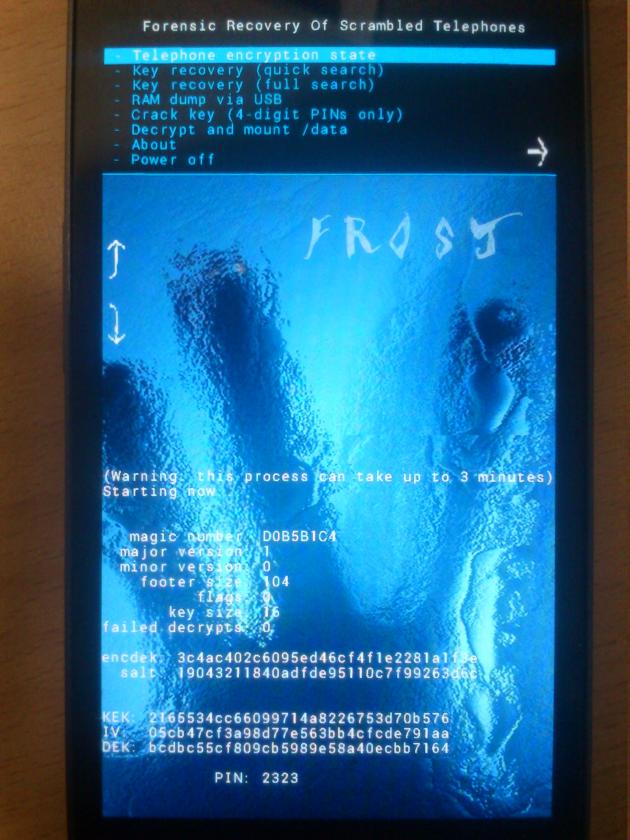
Have you ever wondered what might happen if you had frozen your Android device? If your answer was yes, then you can be glad to know that you’re not alone; a new German security research has been conducted on this matter.
While it is true that Android is the world’s most popular Smartphone OS,however it is also the least secure. A team of German researchers froze phones for an hour only to unveil yet another vulnerability in the OS. Apparently they were able to bypass Google’s data scrambling encryption system introduced in Android 4.0 Ice Cream Sandwich and thus unveiling the phone’s hidden data.
This endeavor allowed the researchers to gain access to contact lists, browsing histories as well as photos.
Android’s data scrambling system was fine for end users, however it was not so for law enforcement and forensics workers, as the team at Erlangen’s Friedrich-Alexander University (FAU) had written in a blog post about their work.
To get past this, researchers Tilo Muller, Michael Spreitenbarth and Felix Freiling from FAU put the Android devices in a freezer for an hour until the device had cooled to below -10C.
The trio came to the conclusion that quickly connecting and disconnecting the battery of a frozen phone forced the handset into a vulnerable mode. This formulated as a outlet so they could start the phone up with some custom-built software rather than its onboard Android operating system.
The researchers named their custom code as Frost- Forensic Recovery of Scrambled Telephones.
The Frost software aided them at copying data onto a phone that could then be analyzed on a separate computer.
It turns out that a chilled phone was also helpful in their hacking project. Data vanishes from memory a lot slower when chips are cold; a feature that allowed the researchers to grab the encryption keys and accelerate unscrambling the contents of a phone.
The FAU researchers connected the Android device to a Linux PC through a USB and then installed the “frost.img” file to the phone. When the operation had completed, a Recovery Mode option turns up under the “fast boot” menu which then rebooted the phone with the Frost tool. The recovery image presents a number of options such as key recovery using quick or full search options, the ability to decrypt and mount the phone’s data and crack the 4-digit PIN key with immense force (such as displayed in the photo below).

Tilo Muller, a PhD student, explained that the breach mainly gave them access to data that had been put in memory as users browsed websites, sent text messages or shared images.
The researchers employed a Samsung Galaxy Nexus as their test device against the attack since it was one of the first to use Android’s disk encryption system. Yet the researchers stated that even other handsets were just as likely to be vulnerable for such a breach. The team is planning to perform further tests on other Android handsets.
The German research team is now working on ways to eliminate such attacks and ensure encryption keys are never put in vulnerable memory chips but are rather only used in the memory directly attached to a phone’s processor. Remember, this only proves how vital it is to have your device backed up so get G Cloud Backup for your Android today before such a breach leaves you stranded.
Be part of the smart crowd and download G Cloud today; it’s free!
